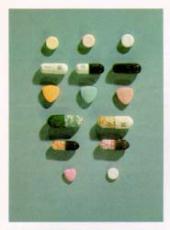 Last Sunday, the UK Guardian published an investigative report on the effects of the slumping economy on the illegal drug trade in rural farming towns. Frequently quoted was Nicolas Rasmussen, author of On Speed: The Many Lives of Amphetamine (NYU Press 2008). Half of the article draws from Prof. Rasmussen’s history of amphetamine’s development and use
Last Sunday, the UK Guardian published an investigative report on the effects of the slumping economy on the illegal drug trade in rural farming towns. Frequently quoted was Nicolas Rasmussen, author of On Speed: The Many Lives of Amphetamine (NYU Press 2008). Half of the article draws from Prof. Rasmussen’s history of amphetamine’s development and use
But West Country locals are well aware of their fragile incomes. ‘I’ve already noticed a difference,’ says the cocaine dealer, refusing to be named. ‘People take the drug to party and celebrate. At the moment they’d rather be at home watching the TV.’ He won’t be drawn on the economic margins of his trade but told clients that if they ‘just wanted to stay up and drink a bit more, they might as well take speed’.
